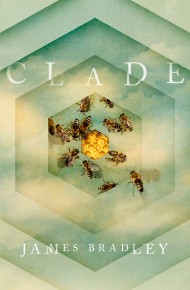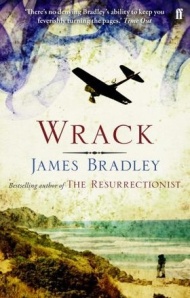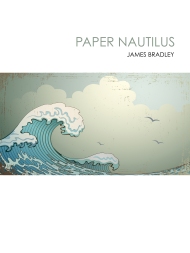Ned Beauman, Boxer, Beetle
 There’s always something thrilling about a great opening sentence. Part of it’s about the way they so immediately engage the reader’s attention, throwing them headlong into the world of the book. But the real power of the great first line – like the great opening paragraph, or page – is not usually grounded in its overt attention-seeking qualities, but in that almost electric sense that this thing in front of you is somehow alive, possessed of its own energy and presence.
There’s always something thrilling about a great opening sentence. Part of it’s about the way they so immediately engage the reader’s attention, throwing them headlong into the world of the book. But the real power of the great first line – like the great opening paragraph, or page – is not usually grounded in its overt attention-seeking qualities, but in that almost electric sense that this thing in front of you is somehow alive, possessed of its own energy and presence.
Of course the opening sentence of 25 year-old Londoner Ned Beauman’s debut, Boxer, Beetle, isn’t too shabby in the overt attention-seeking stakes. After all, it’s not often one hears a narrator declare that “In idle moments I sometimes like to close my eyes and imagine Joseph Goebbels’ forty-third birthday party”. But the real delight of the line lies in its pleasure at its own playful transgression, a delight that only increases as the paragraph continues with a description of Hitler “pretending for weeks the date had slipped his mind, deliberately waiting until the very last order had been despatched to his U-boat commanders . . . before he led Goebbels on some pretext into the cocktail lounge of the Reich Chancellery”, and the “relieved and perhaps even slightly tearful” Goebbels as the crowd gathered around him shouts “Alles Gute zum Geburtstag!”.
It’s all conjecture, of course, but for Boxer, Beetle’s narrator, Kevin Broom it’s the sort of conjecture that sustains him in a life marred not just by his personal problems – which include a genetic disorder that makes him smell unutterably foul, and has earned him the unflattering sobriquet of Fishy, from the unlovely handful of associates he calls his friends – but by his financial inability to pursue his fascination with Nazi memorabilia with the zeal he would prefer.
As Kevin himself would probably be the first to concede, an odiferous outsider with a taste for SS epaulettes and Gestapo letterhead probably isn’t the most prepossessing choice for a narrator, even if – as he is quick to point out – an interest in Nazi memorabilia doesn’t automatically mean he’s a closet Nazi or Holocaust denier. Nor, in the normal course of events would he be likely to do anything worth narrating. But that changes when he is inadvertently caught up in a lethal game of cat and mouse centring upon the mysterious relationship between the English entomologist, Philip Erskine, an almost-forgotten Jewish Boxer, Seth Roach, and the Fuhrer himself.
Perhaps unsurprisingly, given the elements in play, there’s a lot of outward dazzle about Boxer, Beetle, which shifts with almost audible delight between Kevin’s desperate attempts to avoid being executed by the mysterious Welshman who abducts him after murdering not one but two fellow collectors unfortunate to be in possession of evidence relating to Roach’s fate and 1930s England and America. Certainly Beauman’s intelligence is palpable, and while the novel – which incorporates a fascination not just with Nazi memorabilia, but race science, entomology, the late 19th century interest in constructed languages such as Esperanto, Oswald Mosley, the Blackshirts and the East End race riots of the 1930s, the decaying and corrupt English nobility, to name just a few – is almost wilfully eclectic, it never falters under the weight of its almost wilful eclecticism.
In many ways the novel’s mixture of kitsch, pulpy energy and genre-bending ephemera is reminiscent of the work of writers such as Alan Moore, Neil Gaiman and Grant Morrison, a resemblance that is perhaps not entirely accidental given that Beauman is a former comics blogger with The Guardian.
But it also owes more than a bit to the work of Jonathan Coe, and in particular his two most successful novels, The House of Sleep and (a book it resembles in more ways than one) What a Carve-Up!.
Like Coe, Beauman has a serious, and deeply political agenda at work behind the pyrotechnics, even if the connections between the world of the present and the world of the past never quite come into focus. And, as in Coe’s fiction, there is a sort of delighted innocence about the whole that lends its serious elements a playfulness they might not otherwise possess.
Yet where both The House of Sleep and What a Carve Up! depend upon the sheer bravura of Coe’s plotting, Boxer, Beetle, despite its energy and intelligence, never quite coheres. The problem is not structural, or technical, more a sense that there is some unifying idea missing at its core.
As problems go it’s not the worst a book can have, especially not when – as Boxer, Beetle most definitely is – it is so crammed with other good things, or when its author so manifestly bristles with promise. But what it does mean is that despite and one of the most deliciously wicked opening chapters I’ve read in a long time, Boxer, Beetle, for all its pleasures, never quite lives up to the promise of its opening pages.
Originally published in The Weekend Australian, 24 September 2010.








